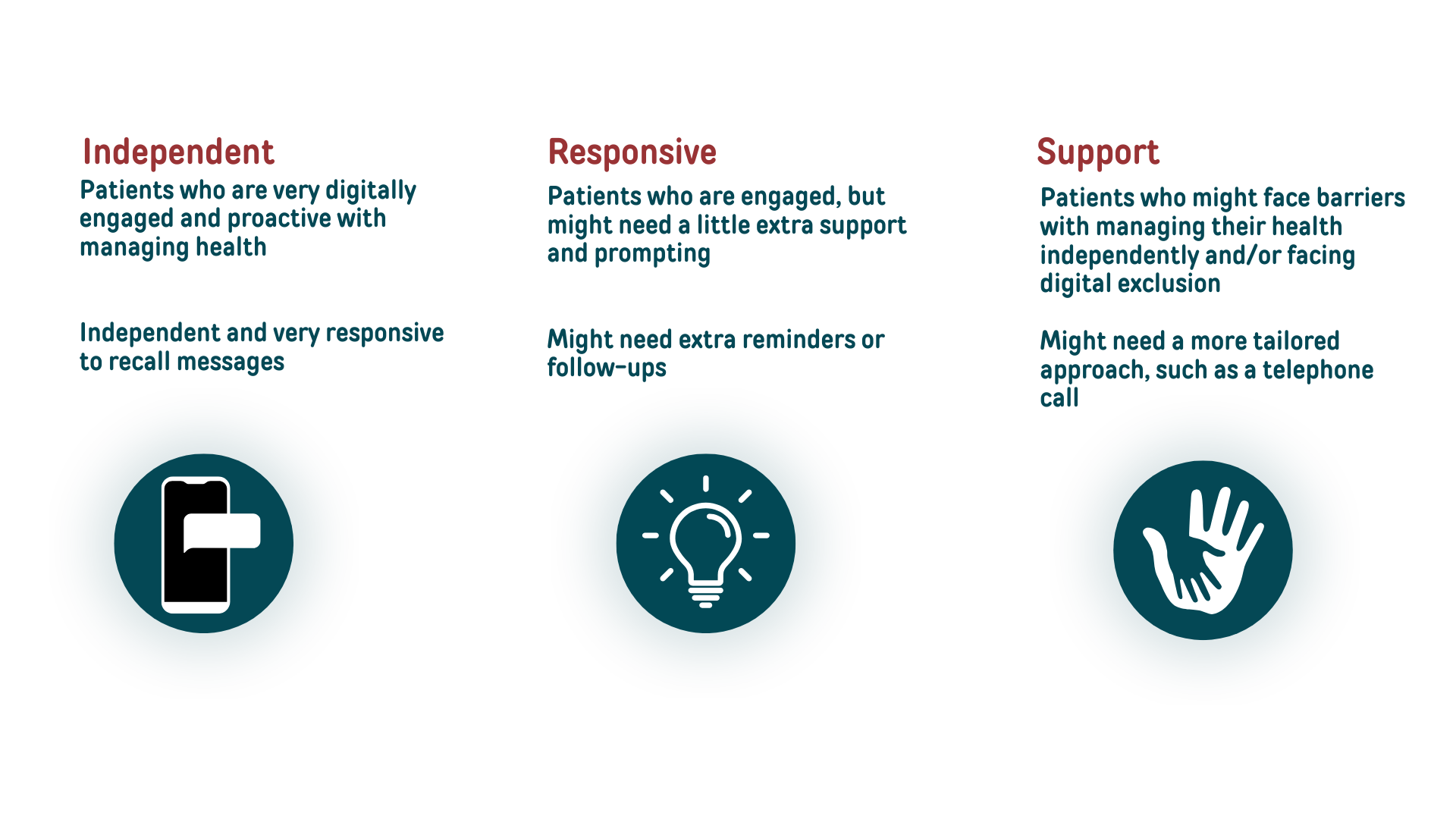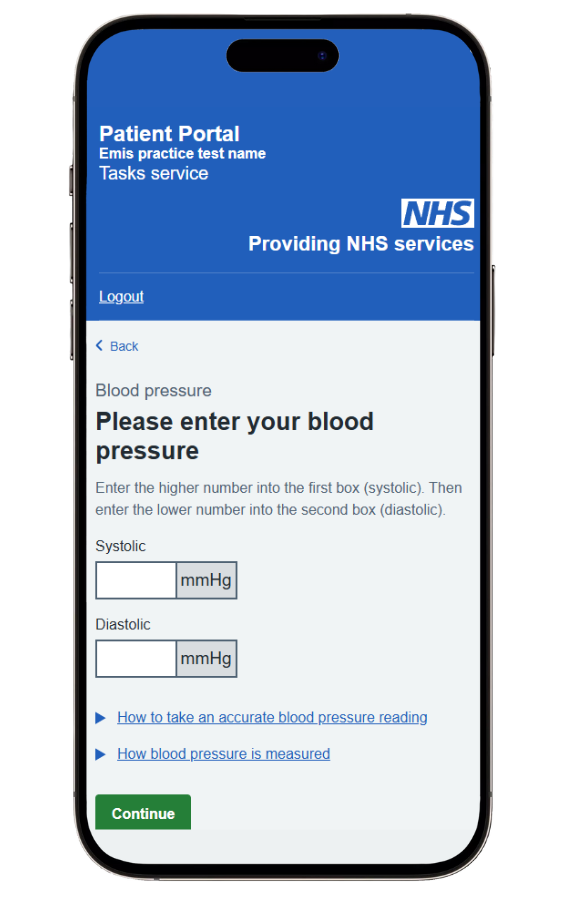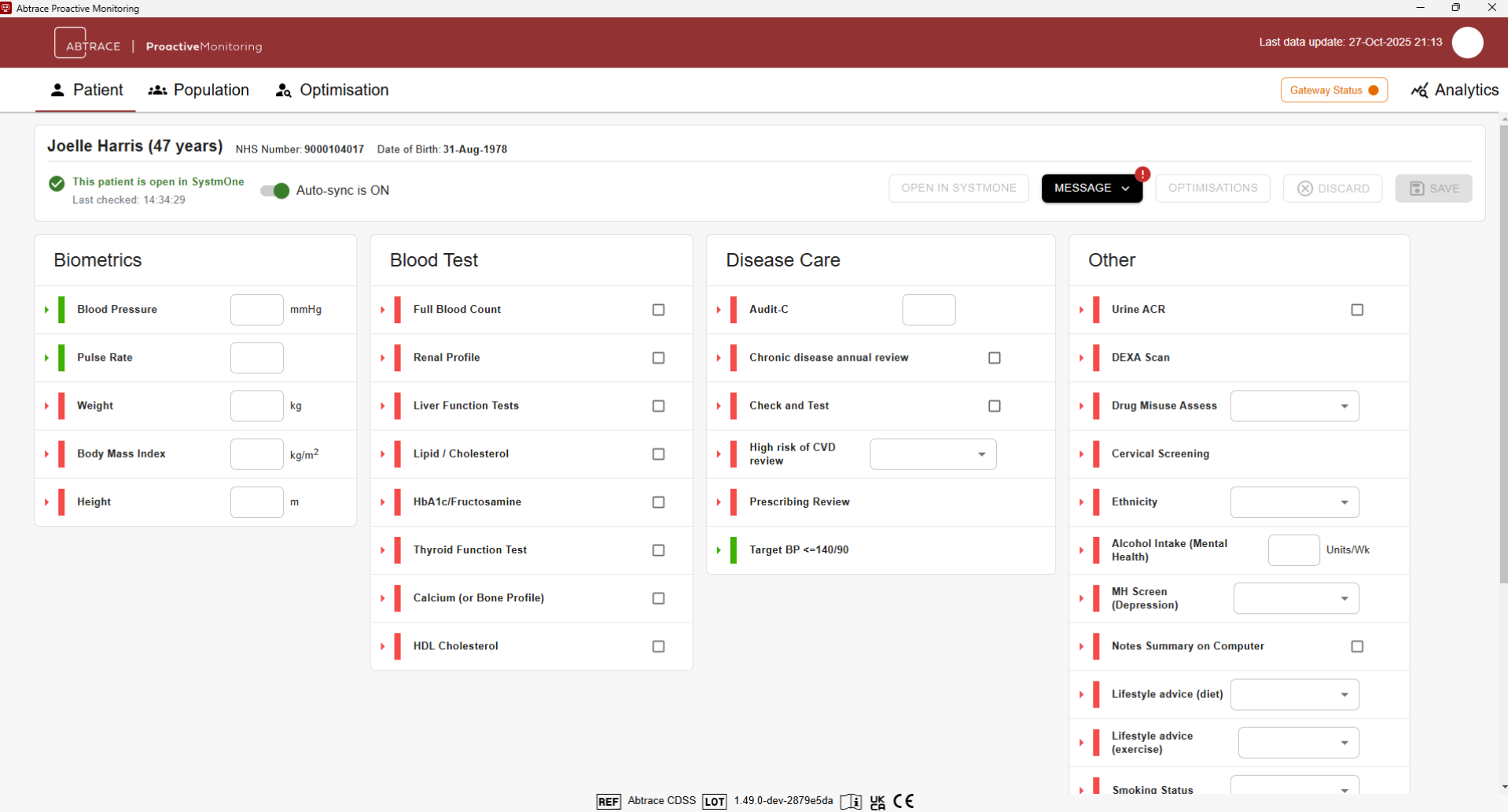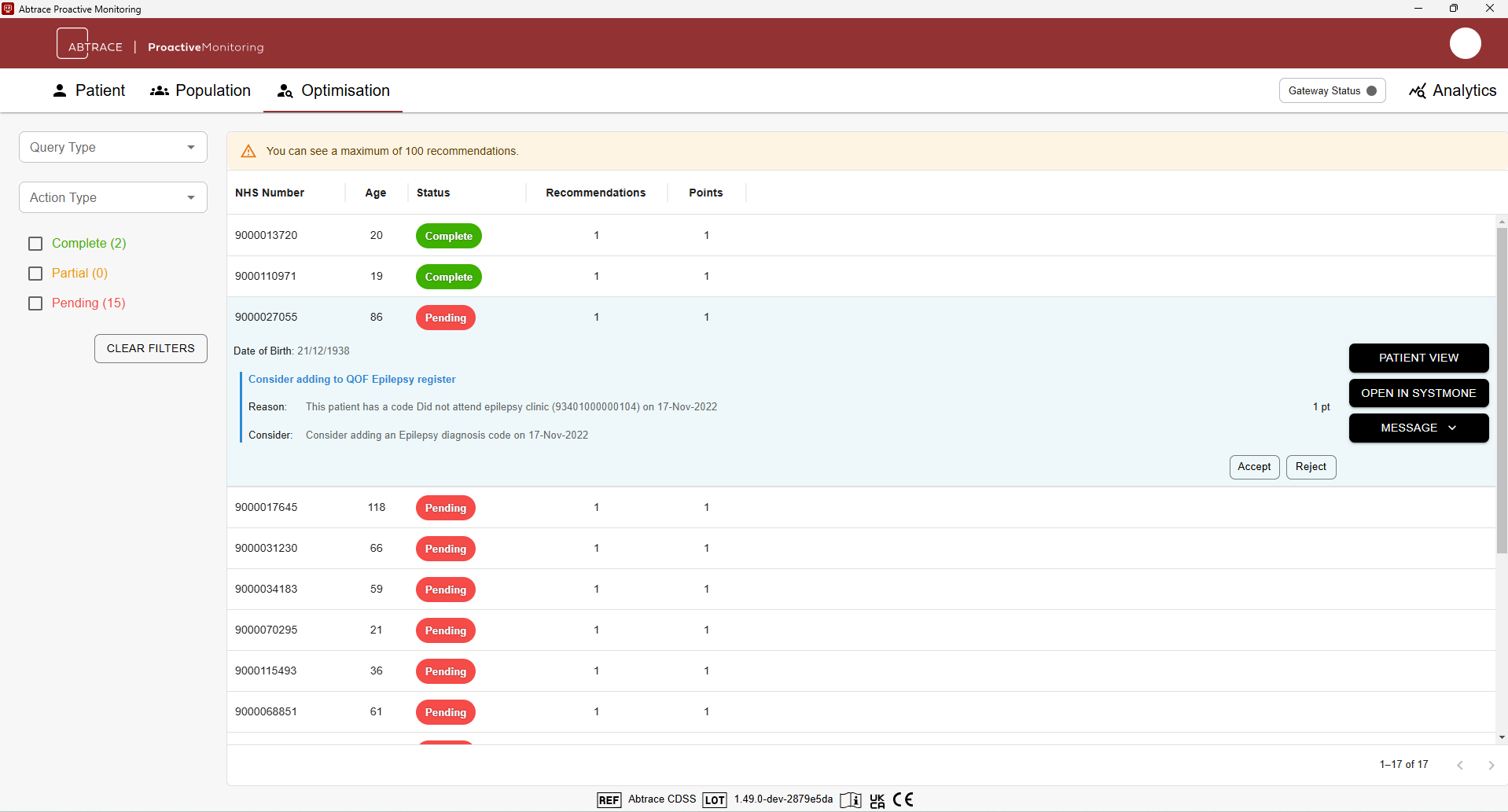“our assistant practitioner, who was doing a lot of the “mad dash” in February and March, was eternally grateful we weren't having this mad dash to try and get people in… and that routine predictable work was much more evenly spread out throughout the year”
In early 2024, the Alexandra Practice in Manchester, was facing multiple challenges all at once. Challenges which might seem all too familiar for many GP practices: recovering from changes inherited from the Covid pandemic; losing valuable domain knowledge and staff capacity due to a recent experienced team member retiring; and the ever-growing demand and complexities of modern-day primary care. We sat down with Suzanne, Shiva and Dr Johnson at the practice, to hear about how they have used Abtrace, and how it’s shaped their ways of working over the last year and a half.
Dr Sam Johnson, a GP Partner at the practice, reflected on how Abtrace has helped to free up capacity, enabling the practice to focus on those patients who need extra support or follow-up, or might get missed when using traditional and more manual recall methods.

“I think the biggest thing is, it frees up time for more of a human touch. Broadly speaking, you've got three sets of patients:
1. People who will respond to every text and every contact from the surgery, and be very proactive in managing their health
2. Some who need a little bit of prompting and a little bit of helping
3. And others who will not engage at all
By automating a lot of the contacts with those [first two groups of] patients, you can do a lot of the heavy lifting and free up a lot of time for the admin team to focus on the third group of people, the people who maybe don't speak English as their first language, who maybe aren't as digitally engaged, and need a bit more of a human touch, need a sort of a friendly voice on the end of the phone saying, come on, your diabetes review is due, come and see Michelle, come down to the practice.”
Shiba, a Care Coordinator, also mentions that Abtrace is “now the easiest thing we use to recall patients for their high-risk reviews – it's been really helpful for us” – and it’s unsurprising why! Our Automated Recall process enables patients to be continuously monitored in the background, and automatically messaged when a monitoring task is due. We empower patients to book appointments directly with our self-booking links, and even submit information to the practices with our patient questionnaires.

Suzanne, a receptionist and part of the administration team, told us about how Abtrace makes it easy to quickly see a patient’s needs and get outstanding tests up to date.
“It's [Abtrace is] amazing to be quite honest: it helps with the job, it helps in the role, it helps when patients call up and they're requesting blood tests, blood pressure… so we always look on Abtrace just to make sure that that's what they're due for.”

With our Patient View, users get a clear summary of a patient’s monitoring needs, with an intuitive colour-coded system to flag tasks which might soon be due, or overdue. Users can instantly action tasks, as well as directly message a patient from here. It also highlights if the patient is potentially missing any codes, which can be easily reviewed with our Optimisation feature, ensuring patients are accurately coded and can be monitored correctly.

For the Alexandra Practice, they have already automated many of their recall processes with customised automated rules. They also merged with a second practice, and now have automated recalls running at both the practices. We also offer ongoing support for all practices, to ensure that users get the most out of both our existing features and new releases.
Curious? Book in for a live demo here, to get started today 🙌
“I would recommend to the other practices because when we had the manager change, she was like surprised to see this up because it's going on very well here. So I would definitely recommend to other practices.”